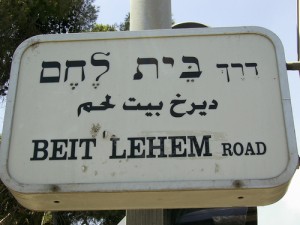 Photo by Zeevveez
Photo by Zeevveez
A physically ugly blight on the neighborhood is the huge dumpsters, overflowing with garbage, that stand on or by the neighborhood’s streets. These are especially unpleasant and unsanitary in Baka’s commercial areas, specifically along Bethlehem Road’s cafés, shops, and produce stands. In many cities, garbage disposal bins are located inside buildings or underground. Perhaps it’s difficult to get the garbage out of sight because of the neighborhood’s history, its narrow streets, and its old stone structures. The owners of the businesses along Bethlehem Road have resisted changes that would cost them money, even though the overflowing garbage bins (and the rats) must be deterring potential customers. Garbage disposals are not only outside but they are part of people’s home too, and when they overflow or break it can be incredibly frustrating to deal with, luckily homeowners can visit this site to set a home warranty plan, but it is not as easy for a general garbage disposal that the residents all use.
One moral blight on the neighborhood is the underage workers, most of them Arab kids, that one sees working in the stores and on the streets. These boys, many of them well under 16, should be in school; their presence at workplaces is illegal and wrong.
 Lest there be any misunderstanding: As an Israeli and a Jew, I don’t believe that the current government of Sweden is quasi-Nazi, that all Swedes are anti-Semites, or that I should boycott Ikea, the Swedish furniture firm. At the same time, to remove all doubt, I solemnly declare that I have never been involved in the international trade in organs for transplant. I do feel exceedingly silly bothering to make these denials. But they seem somehow necessary in light of the current Swedish-Israeli tensions, which are a product of egregiously incompetent journalism in a Swedish paper and equally irredeemable diplomacy by Israel in furious response.
Lest there be any misunderstanding: As an Israeli and a Jew, I don’t believe that the current government of Sweden is quasi-Nazi, that all Swedes are anti-Semites, or that I should boycott Ikea, the Swedish furniture firm. At the same time, to remove all doubt, I solemnly declare that I have never been involved in the international trade in organs for transplant. I do feel exceedingly silly bothering to make these denials. But they seem somehow necessary in light of the current Swedish-Israeli tensions, which are a product of egregiously incompetent journalism in a Swedish paper and equally irredeemable diplomacy by Israel in furious response.




